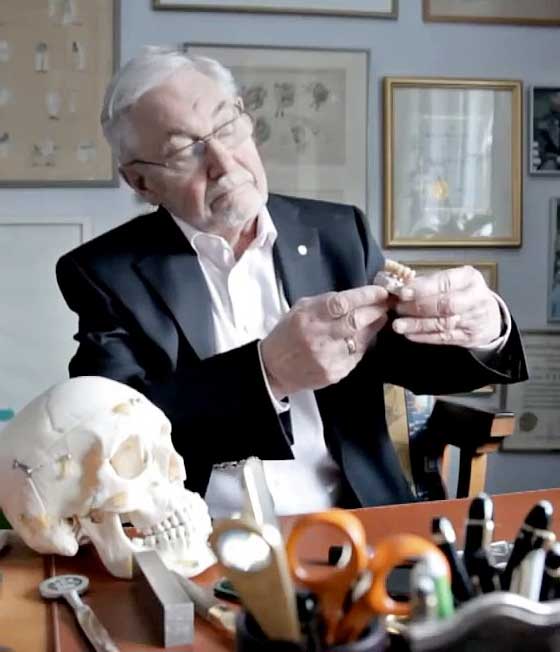While dental implants as we know them are a relatively recent invention, the history of dental implants goes back thousands of years.
For millennia, our ancient forebears have innovated to help people manage and care for their teeth. They intrinsically understood the importance of teeth to their health and longevity. They also cared about the appearance of their smiles. Over thousands of years of advancement, dental implants have evolved to become a remarkable substitute for natural teeth.
Consider the following history of dental implants, which goes back much further than you think.
Ancient Attempts at Tooth Replacement
Some of the earliest attempts at dental implants date back to ancient times. Their goal was to fill the spaces left behind by missing natural teeth. They practiced this art on the living and the dead.
- 4,000 Years Ago – China used bamboo pegs to fill the spaces left by missing teeth.
- 3,000 Years Ago – In Egypt, an Egyptian Pharoah had a copper peg placed into the gap left by a missing upper tooth. This copper peg was placed after the king’s death to prepare the Pharoah for an eternity of good eating in the next life.
- 2,300 Years Ago – An iron false tooth was found in a cadaver in a Celtic grave located in France. It’s assumed this false tooth was placed after the individual’s death.
- 2,000 Years Ago – In countless civilizations, they used animal teeth and human teeth (often from slaves or poor people) to replace the missing natural teeth of the wealthy citizens.
Innovations in the 18th and 19th Centuries
Major innovations in implants dentistry occurred in the 1700s and 1800s. Dentists and doctors began to experiment with gold and other metal alloys to help support false teeth. These early attempts were ineffective because the body often rejected these early implants. It would take time before a proper alloy for implants could be identified and developed for widespread use.
Dental Implants in the Early 20th Century
In the 1930s and 1940s, dentists and dental surgeons began to use orthopedic screws to fix false teeth in place. This special spiral post design encouraged bone to grow around these early implants.
1952: The Innovator, Dr. Per-Ingvar Branemark

In 1952, Dr. Per-Ingvar Branemark was studying the blood flow in rabbits. During this study, he found that the bones of the rabbits had fused to titanium chambers he’d placed as part of his research.
Through serendipity, Dr. Branemark had discovered osseointegration, the process by which an implant fuses with the existing bone structure. At long last, science discovered an alloy that was not rejected by the body and fused with bone for proper anchoring and stability.
1965: Dr. Branemark Places the First Dental Implant
After additional years of research, Dr. Branemark placed the first successful two-stage titanium dental implant in a live patient. This implant took six months to properly integrate with the bone tissue and lasted for an astonishing 40 years.
The modern dental implant we know today was born thanks to the ingenuity of Dr. Branemark.
Advances in the Second Half of the 20th Century
Further innovations in implants dentistry have occurred in the decades since Branemark’s discovery. New implant shapes ensure proper stability of the implant when in place. In addition, new oral surgery techniques improve patient recovery and increase the stability of dental implants when they are in place.
The Future is Dental Tourism
After thousands of years of advancement, dental implants are now widely used around the world. The only impediment for patients is the price of dental implants. In the USA, dental implants can cost from $2500 to $4000 each. In Costa Rica, these same dental implants cost less than $1000. Some clinics, like Goodness Dental, have a 99% success rating and offer a lifetime replacement guarantee on their titanium dental implants.
Every month, thousands of American and Canadian patients travel to Costa Rica for safe, affordable dental care at technologically advanced clinics staffed with qualified dental implants specialists. The short trip to Costa Rica helps most patients save tens of thousands of dollars on their dental care and affords them a wonderful tropical getaway at the same time. Dental tourism is the future of dental implants and a tremendous opportunity for patients to save on world-class dental care in the tropical paradise of Costa Rica.
Remember that general dentists should not place dental implants. Only qualified periodontists or maxillofacial surgeons should place dental implants. Dental tourism patients should also be careful to choose only accredited dental clinics like Goodness Dental, accredited by Global Clinic Rating and the Costa Rica Dental Association.
Call Goodness Dental at 844-297-3587 to receive a free dental estimate.

